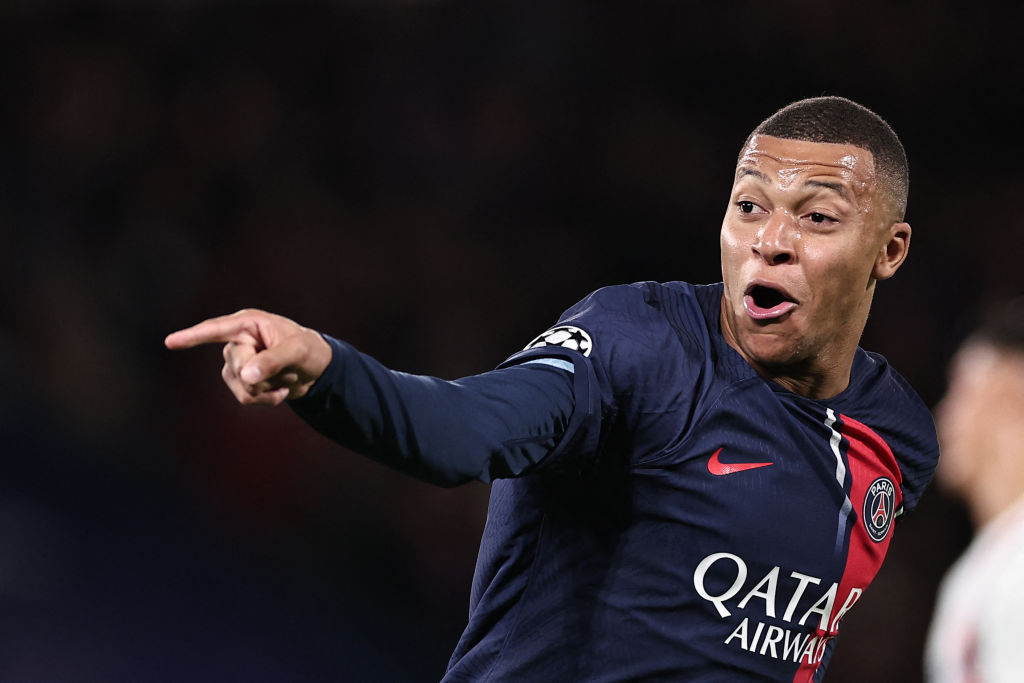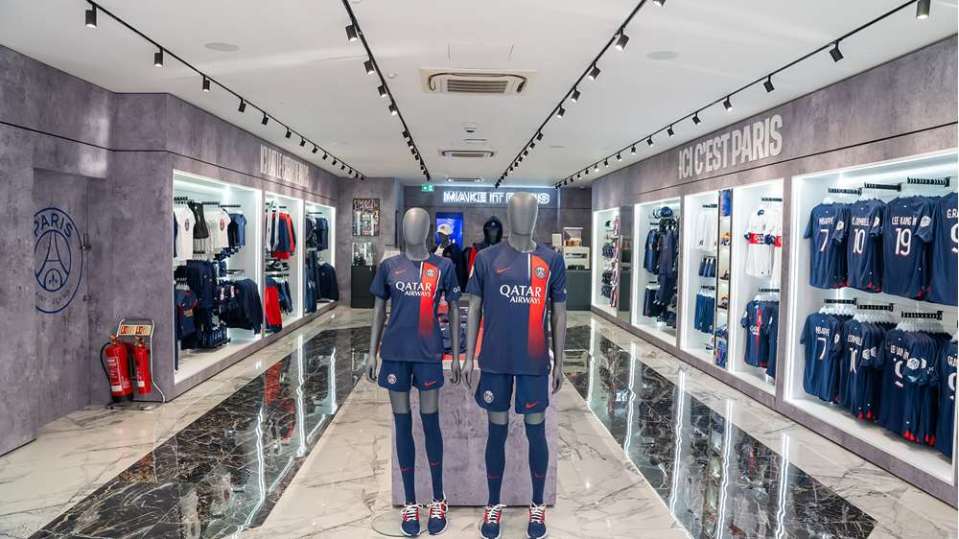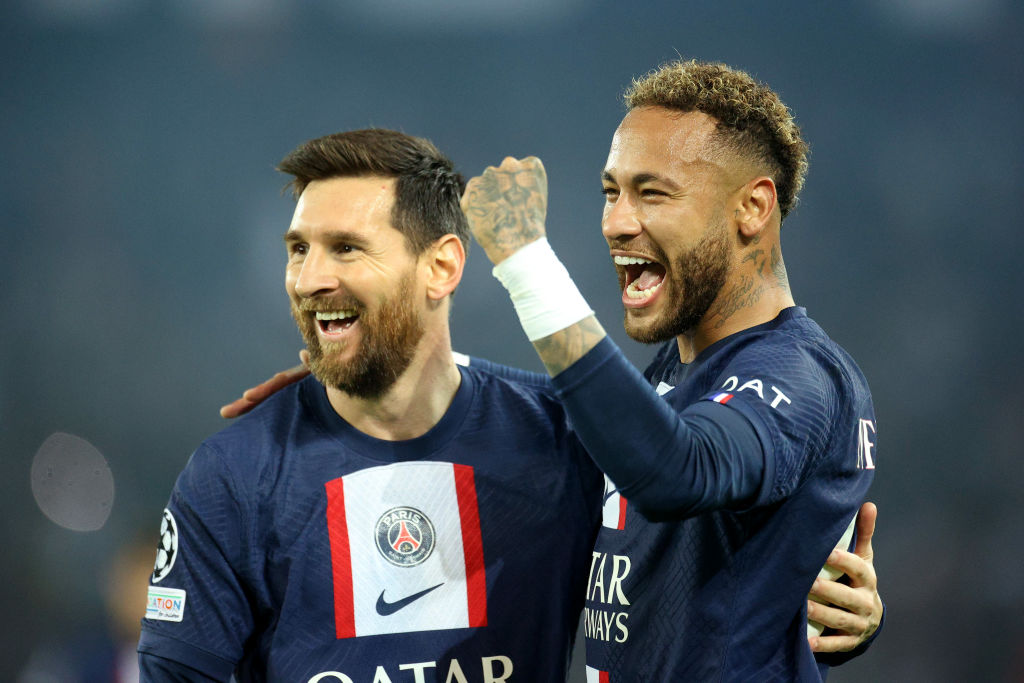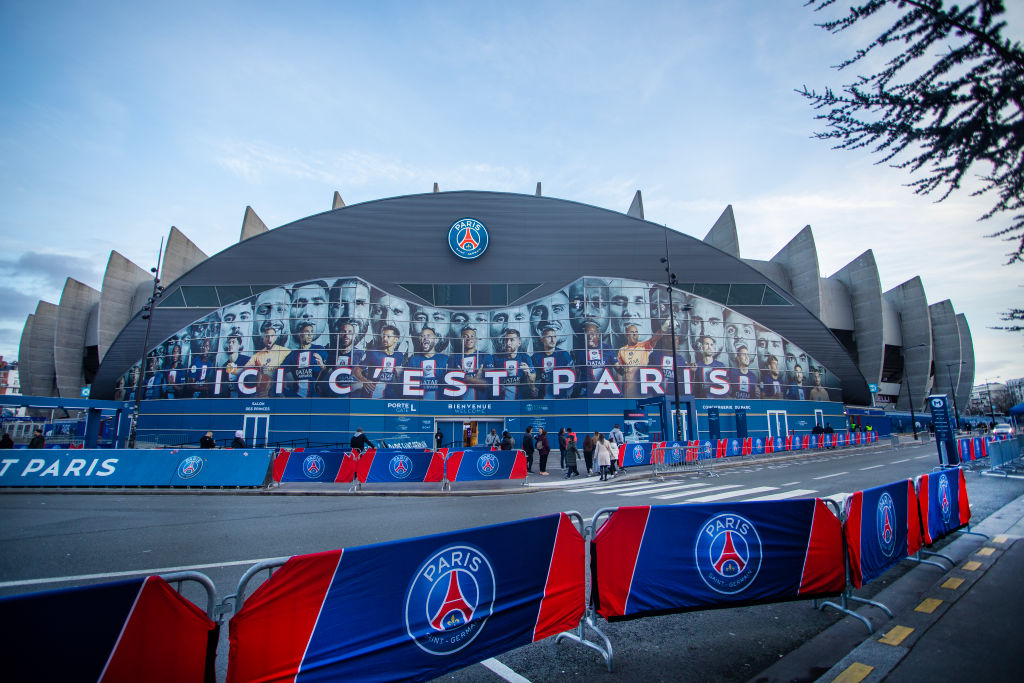‘Commercially, we’re bigger than any one player’: PSG on life after Messi and Neymar

Paris Saint-Germain have become European giants and a global mega-brand in the last decade, so can they keep growing without Lionel Messi and Neymar? Mais oui, says revenue chief Marc Armstrong.
Something unusual happened on Oxford Street in early September. A few doors down from Urban Outfitters and H&M, Paris Saint-Germain opened an official club shop, becoming the first overseas sports team to have a retail outlet in London.
The store sells Kylian Mbappe shirts and other club merchandise to the UK market, its biggest outside of France. It is part of a long-term strategy to build a global brand that club chiefs believe will sustain its income despite the loss of megastars Lionel Messi and Neymar.
“Even London clubs don’t tend to have a store in central London. Having that prime real estate is a big statement for us,” says Marc Armstrong, PSG’s chief revenue officer.
“First and foremost we’re a football club and what we do on the football pitch matters most. But we’ve created this lifestyle brand and that’s opened these doors and enabled us to have partners all over the world.”
PSG have enjoyed a certain cachet since they were founded in 1970, thanks to their fashionable location, chic navy and red shirts and sprinkling of flamboyant players such as Ronaldinho, George Weah, Jay-Jay Okocha and David Ginola.
But since their 2011 takeover by Qatar Sport Investments, the club’s brand has been turbo-charged by an era of superstar signings, such as Zlatan Ibrahimovic, David Beckham and, more recently, Neymar, Mbappe and Messi.
Their relationship with kit maker Nike is the longest-running and most lucrative in football, while their range with the US sportswear giant’s Air Jordan label has been a slam dunk for both revenue and coolness.
With club shops now from Tokyo to New York and LA, PSG’s iconic Eiffel Tower-inspired badge has become as ubiquitous among celebrities Rihanna, Dave, Kendall Jenner and Gigi Hadid as it has with football fans across the planet.

“You see people all over the world wearing PSG jerseys that you certainly wouldn’t have seen 10 years ago. Even in Marseille now, which is pretty unheard of,” says south Londoner Armstrong. “If you look at who’s buying our product it’s young cool people who want this edgy brand and the Jordan jerseys.”
Commercial partners see them “like the Yankees, the Bulls or the Lakers,” he adds. “The Yankees, 95 per cent of people who buy their hats couldn’t name a single player. I don’t think we’re like that, but we’re similar in terms of a brand that transcends the sport.”
Why brand is all important for PSG
Brand-building has helped PSG increase revenue eight-fold and multiply sponsorship revenue by 20 since the Qatari takeover. The club expects to announce record revenue of around €800m for 2022-23, a figure only a handful of teams can rival.
Critics have accused PSG of benefitting from generous deals with Qatari brands, such as main sponsor Qatar Airways. Armstrong counters that only six of their 35 global partners, contributing 20 per cent of the club’s revenue, are from the Gulf state.
Selling the club to consumers and corporates alike has been vital, since French football’s domestic media revenues are dwarfed by the Premier League’s. Last year they earned around €160m in TV payments, only €60m of which was from Ligue 1.
The other constraint on their earning potential is their stadium, the Parc des Princes. Its 48,000 seats are not enough to satisfy demand; Friday’s home game with Monaco will be PSG’s 124th consecutive sellout in a row, say the club.

Neymar, Messi and Mbappe were key figures in catapulting the Parisians to new commercial frontiers. Two left last summer and the third could be off next year, but Armstrong insists it won’t slow down their upward trajectory.
“Did signing Messi and Neymar help commercially? Absolutely. But we’re not going to suffer commercially from players moving on, in my opinion,” he says. “Mbappe is a great player, clearly, and he’s important from a sporting point of view. Commercially, we’re bigger than any one player. We’ll continue to grow as a brand.”
Armstrong cites the summer’s business as evidence. Messi left on 2 June; the following day a new home kit launched and has been a record seller. PSG also embarked on their most lucrative summer tour ever, to Japan and South Korea.
He dismisses the suggestion that sponsors might lose interest if the club’s wait for a first Champions League title goes on, pointing to the 33 trophies won since 2011. “We’ve built a brand that a lot of it is sustained regardless of performance on the pitch,” he adds.
Developing homegrown talent and a stadium
The departure of Messi and Neymar has heralded a new era at PSG, focused not on galacticos but nurturing their own talent from the greater Paris region, the biggest football hotbed in the world, so that they can develop rather than buy the next Mbappe.
To that end they have just opened a new €300m training centre in Poissy to the west of the city, where all PSG teams – men’s and women’s first team and youth sides – will be housed. They believe it to be the best of its kind in the world.
PSG are close to selling a minority stake, reportedly to US private equity firm Arctos Sports Partners, which would value them at €4bn. “That’s about taking us to the next level and helping us in certain markets,” says Armstrong.

A cash injection could also help PSG accomplish their next major project: expanding Parc des Princes or relocating, either to the Stade de France or a new, purpose-built stadium with a capacity of up to 70,000.
“Our clear preference is to redevelop the Parc des Princes. It’s our historic home, it’s where we and our fans want to be, it’s in the city limits of Paris. But it’s not dependent just on us. The city need to be prepared to sell us the building,” he says.
“There’s a timescale. The chairman [Nasser Al-Khelaifi] would say it needs to happen now. Even if we said tomorrow we have a deal with the city and we’re going to redevelop Parc des Princes, it’s going to take years. We want to do it yesterday.”
